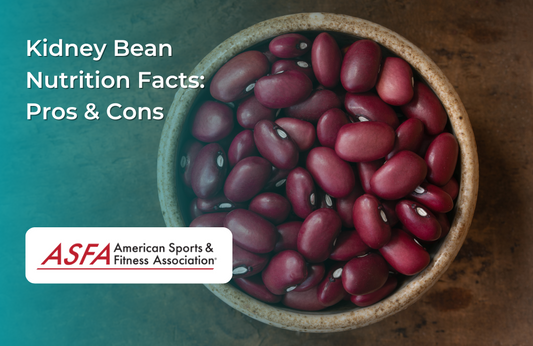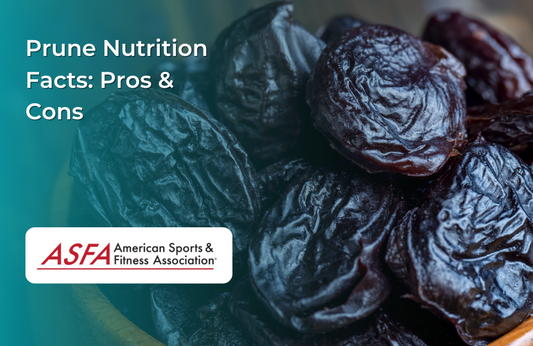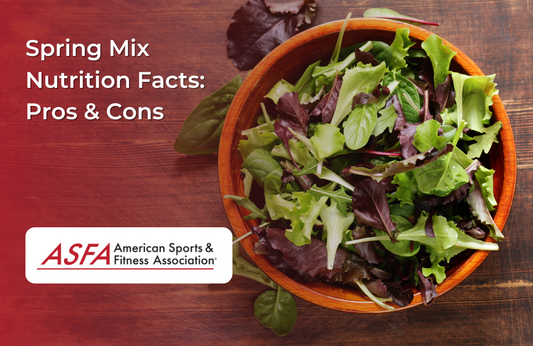Kidney beans are a nutrient-rich legume known for their high protein, fiber, and essential vitamin content. They are a staple in many plant-based diets due to their ability to support heart health, digestion, and energy production. However, they also contain natural compounds that can be harmful if not cooked properly. Understanding the pros and cons of kidney beans helps in making informed dietary choices.
Kidney Bean Nutrition Facts: Pros and Cons of Eating Kidney Beans
Excellent Plant-Based Protein Source
Kidney beans are high in protein, making them a great meat alternative for vegetarians and vegans. They provide all essential amino acids when paired with grains like rice. Adding kidney beans to your diet can enhance protein intake and improve overall nutritional value.
Rich in Dietary Fiber for Digestion
Kidney beans contain both soluble and insoluble fiber, which:
-
Supports gut health and promotes regular bowel movements.
-
Aids in weight management by promoting satiety.
-
Contributes to blood sugar control by slowing glucose absorption and managing post-meal blood sugar spikes.
Supports Heart Health
The fiber, potassium, and folate in kidney beans help:
-
Lower bad cholesterol (LDL).
-
Reduce blood pressure.
-
Improve overall cardiovascular health.
Additionally, the various health benefits of kidney beans include their potential to prevent heart disease, cancer, and diabetes, while contributing to weight management and intestinal wellness.
Helps Stabilize Blood Sugar Levels
Kidney beans have a low glycemic index (GI) and high fiber content, which:
-
Prevents rapid blood sugar spikes.
-
Supports insulin sensitivity, making them a great food for people managing diabetes.
Additionally, eating beans regularly can improve blood sugar control and has been linked to lower risks of obesity and type 2 diabetes.
Provides Essential Vitamins and Minerals
Kidney beans are rich in:
-
Iron – Helps transport oxygen in the blood and prevents fatigue.
-
Magnesium – Supports muscle and nerve function.
-
Folate – Essential for DNA synthesis and fetal development.
-
Potassium – Regulates blood pressure and fluid balance.
Kidney beans nutrition includes high levels of protein, fiber, and essential micronutrients, which aid in managing blood sugar levels, supporting heart health, and providing antioxidants that may help prevent chronic diseases and certain cancers.
Rich in Complex Carbohydrates
Kidney beans are an excellent source of complex carbohydrates, which are essential for providing energy to the body. Complex carbohydrates are made up of long chains of sugar molecules that are broken down slowly, releasing glucose into the bloodstream. This slow release of glucose helps to regulate blood sugar levels and prevent spikes in insulin levels. The complex carbohydrates in kidney beans also contain fiber, which can help to slow down the digestion and absorption of glucose, further regulating blood sugar levels.
High in Antioxidants
Kidney beans are rich in antioxidants, which are compounds that help to protect the body from damage caused by free radicals. Free radicals are unstable molecules that can cause oxidative stress and damage to cells, leading to chronic diseases such as cancer, heart disease, and Alzheimer’s disease. The antioxidants in kidney beans, including polyphenols and flavonoids, can help to neutralize free radicals and reduce oxidative stress, promoting overall health and well-being.
Colon Cancer Prevention
Kidney beans have been shown to have a protective effect against colon cancer, with studies suggesting that eating kidney beans regularly can reduce the risk of colon cancer by up to 50%. The fiber and antioxidants in kidney beans may help to prevent the formation of cancerous cells in the colon, while the phytochemicals present in kidney beans may help to inhibit the growth of cancer cells. Additionally, the high fiber content of kidney beans can help to promote regular bowel movements, reducing the risk of constipation and diverticulitis, which are both risk factors for colon cancer.
Budget-Friendly and Versatile
Kidney beans are affordable, easy to store, and versatile in a variety of dishes, including soups, stews, salads, and chili.
Cons of Eating Kidney Beans
Must Be Cooked Properly to Remove Toxins
Cook kidney beans properly to eliminate harmful compounds like phytohaemagglutinin, a natural toxin that can cause severe digestive distress and food poisoning-like symptoms. Boiling kidney beans for at least 10 minutes destroys this toxin.
May Cause Digestive Discomfort
Due to their high fiber and oligosaccharide content, kidney beans may cause:
-
Bloating and gas, especially if consumed in large amounts.
-
Digestive sensitivity in some individuals.
-
Soaking and cooking beans thoroughly can help reduce these effects.
Contains Antinutrients That May Affect Mineral Absorption
Kidney beans contain phytates and lectins, which:
-
May reduce the absorption of iron, calcium, and zinc.
-
Are reduced through soaking, sprouting, or cooking.
Can Be High in Carbohydrates
Red kidney beans, known for their high protein and fiber content, have complex carbohydrates, but they still contribute to overall carb intake, which should be monitored for those following low-carb or ketogenic diets.
Nutrition Facts
Overview of Nutritional Content
Kidney beans are a nutrient-dense food, providing a range of essential vitamins, minerals, and macronutrients. One cup of cooked kidney beans contains:
-
Protein: 15g
-
Fiber: 11g
-
Carbohydrates: 40g
-
Fat: 0.5g
-
Sodium: 1mg
-
Potassium: 1128mg
-
Folate: 256mcg
-
Iron: 3.9mg
-
Manganese: 1.1mg
-
Copper: 0.6mg
-
Phosphorus: 210mg
-
Zinc: 1.1mg
-
Calcium: 55mg
-
Magnesium: 120mg
Kidney beans are also a good source of antioxidants, including polyphenols and flavonoids, which can help to protect against chronic diseases such as cancer, heart disease, and Alzheimer’s disease.
Note: The nutritional content of kidney beans may vary depending on the type and cooking method.
Conclusion
Kidney beans are a nutrient-dense, protein-packed legume that supports digestion, heart health, and blood sugar regulation. However, they must be properly cooked to remove natural toxins, and their fiber content may cause digestive discomfort in some individuals. Including kidney beans in a well-balanced diet ensures maximum health benefits while minimizing potential downsides.
FAQs
How many kidney beans should I eat per day?
A serving of ½ to 1 cup of cooked kidney beans provides protein, fiber, and essential nutrients without excessive carb intake. When you consume kidney beans daily, you benefit from their high nutritional value, which supports a healthier diet.
Are canned kidney beans safe to eat?
Yes, canned kidney beans are pre-cooked and safe to eat after rinsing to reduce sodium content.
Can kidney beans help with weight loss?
Yes, the benefits of kidney beans, including their fiber and protein content, promote satiety, making them a great food for weight management.
Do kidney beans cause bloating?
Yes, their fiber and oligosaccharides may cause bloating, but if you eat kidney beans that are properly soaked and cooked, and consume them in moderation, it can help mitigate this issue.
Are kidney beans good for diabetics?
Yes, white kidney beans have a low glycemic index and help regulate blood sugar levels due to their fiber content, making them beneficial for managing diabetes.





